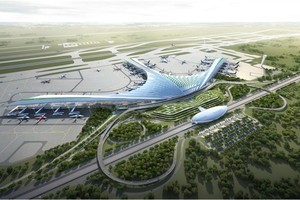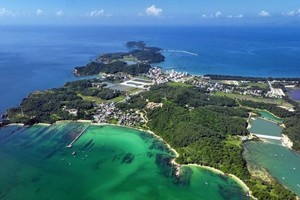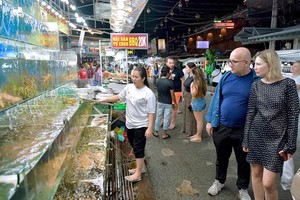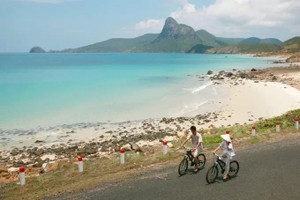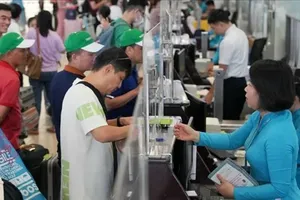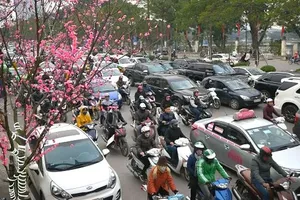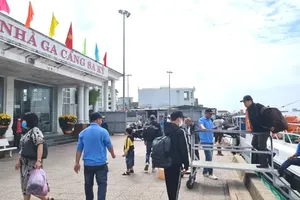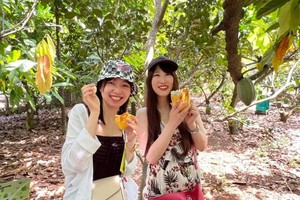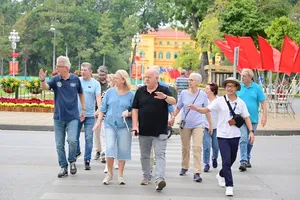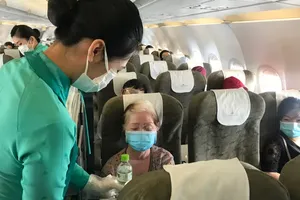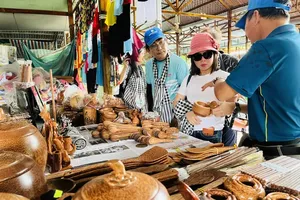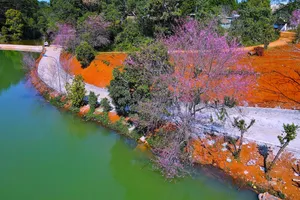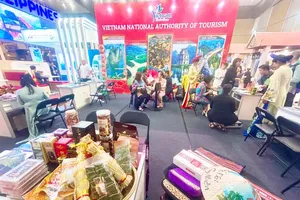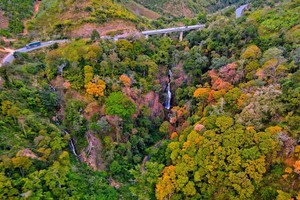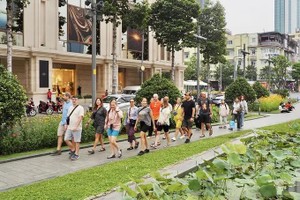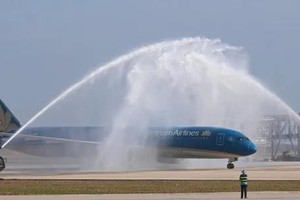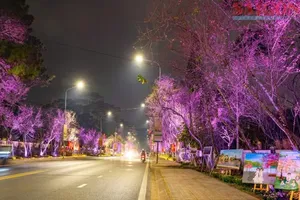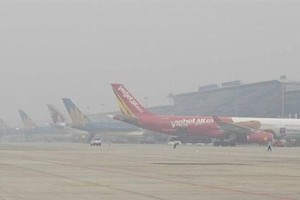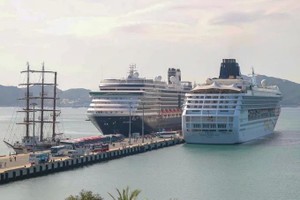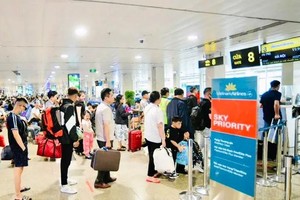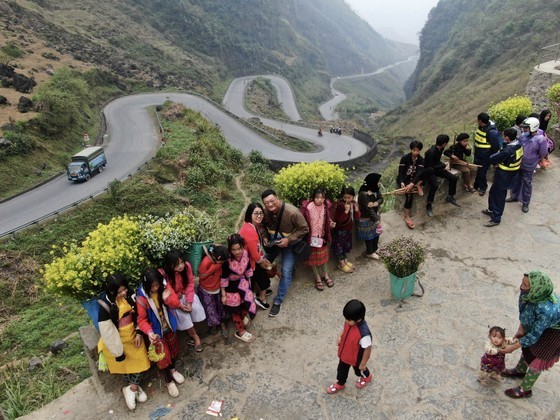 |
Tourists visit Ha Giang Province. (Photo: SGGP) |
Travel businesses express their concern over the choice that has lasted for many years without a radical solution.
Ms. Nguyen Le Mai from HCMC’s District 4 decided to book a 4 nights 5 days Thailand tour package departing at the end of June for her family at a cost of VND6.5 million per person instead of traveling domestically.
Domestic tours have sharply increased, such as Nha Trang –Mui Ne priced at VND7.5 million per person, Hanoi – Ha Giang – Cao Bang valued at more than VND10 million per person. In addition, the high prices of domestic air tickets have created barriers to self-sufficient traveling. HCMC-Hanoi one-way air ticket costs from VND1.2 – VND2.1 million per passenger, Mai said.
Mr. Tran Nguyen Quoc Truong from Go Vap District and Ms. Huong Quynh from Binh Thanh District also talked about their experience with expensive meals in the local small restaurants in Con Dao island and central highlands provinces.
According to travel enterprises, the domestic market can not compete with the foreign market when domestic tourism sees an uninterrupted rise and a lack of cooperation between businesses in the sector, especially the aviation industry. Several promotional programs offering cheap air tickets have been launched. However, it is not easy for travelers to get a cheap flight due to the tough conditions of the reservation. Besides, many tourist companies stockpile a large number of tickets to make a profit during the peak season.
Tens of conferences promoting tourism in Thailand, Japan, and South Korea were organized in Hanoi, HCMC, and other major cities nationwide from the beginning of May to date. Vietnam also conducted tourism promotional programs in Australia and the US. However, the difference is that the above-mentioned countries have tourism promotion centers located in Vietnam’s main cities and provinces.
Especially, travel agents from foreign countries are very interested in Vietnamese visitors' hobbies, habits, expenditures, and expectations to offer suitable tours offering unique travel experiences, said Mr. Nguyen Minh Man, marketing director of TSTTourist Company.
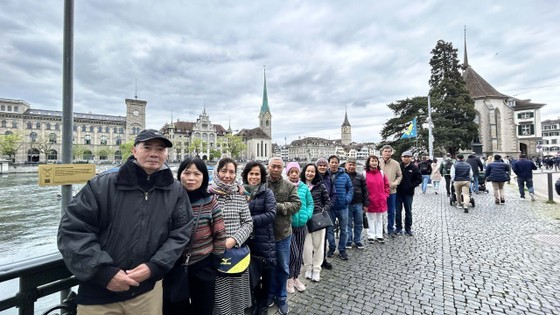 |
Visitors prioritize choosing outbound tours due to the significant increase in the price of domestic trips. (Photo: SGGP) |
In addition, Vietnam saw a limit on the amount of money of about US$2 million per year for tourism promotion activities abroad while other countries poured an average number of US$86 million per year for their tourism strategies before the Covid-19 pandemic. Thailand and Singapore spent US$100 million per year, while Malaysia was US$130 million per year.
According to the Vietnam National Administration of Tourism (VNAT), in 2019, the country’s tourism revenue was VND755,000 billion (over US$32 billion) while Thailand got US$60 billion.
Under the decision 147/QD-TTg dated in 2020 on Vietnam Tourism Marketing Strategy to 2030, Vietnam’s tourism is expected to earn a total revenue of US$77 billion – US$80 billion by 2025 and US$130 – US$135 billion by 2030. However, the cost for tourism marketing campaigns is still US$ 2 million.
The lack of cooperation between insiders will reduce the competitiveness of domestic tourism, said the Chairman of the board of Vietravel Holdings Nguyen Quoc Ky.
Deputy general director of Vietluxtour Nguyen Ngoc An stated that the country’s tourism industry needs policies connecting enterprises and offering airline tickets at reasonable prices to recover domestic tourism.
One of the key factors contributing to developing Vietnamese tourism is the enhancement of the quality of services and connection between the sectors, such as aviation and destinations, to provide appropriate and competitive pricing rates. The Ministry of Culture, Sports and Tourism must take on the role of a conductor to revive tourism towards sustainable development in the post-pandemic period, said experts.
